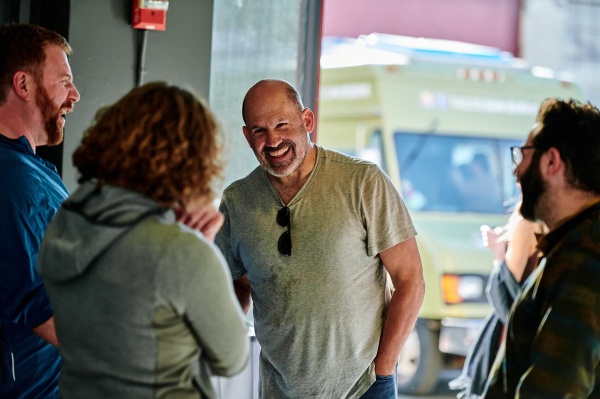Big funds ‘screwing with Series A market but not seed market’ says veteran VC Mike Hirshland
Mike Hirshland is enjoying 2022. Despite the market’s zigs and zags, he has spent much of his time this past summer in Rhode Island, where relatives from afar have gathered on and off for an extended family reunion. He and partner Raanan Bar-Cohen were also able to close their fifth fund with $150 million in […]


Mike Hirshland is enjoying 2022. Despite the market’s zigs and zags, he has spent much of his time this past summer in Rhode Island, where relatives from afar have gathered on and off for an extended family reunion. He and partner Raanan Bar-Cohen were also able to close their fifth fund with $150 million in capital commitments at winter’s end — ahead of the stock market collapse that would follow. Indeed, the two now have around $375 million in assets under management at their 11-year-old venture firm, Resolute Ventures.
Yet another reason to feel cheery is what’s happening at their stage of the market, where after a rapid run-up, valuations are slowly but surely coming back down to earth, suggests Hirshland. He says that while Resolute’s pace has been “remarkably consistent,” leading to roughly 10 investments each year that draw initial checks from the firm in the $1 million to $1.5 million range, the “biggest departure” in its history was last year. It was then that both round sizes and valuations ballooned, prompting the firm to write bigger checks while also forcing it to walk away from “really big, really pricey seed rounds” with valuations so lofty that Hirshland feared their next round would be problematic.
That’s not to say it’s all been a walk in the park. Some of Resolute’s best-performing portfolio companies, including Opendoor and Bark & Co., have had their struggles since going public through tie-ups with special purpose acquisition companies.
Another of Resolute’s bets, Clutter — which is also backed by Sequoia Capital and SoftBank — has also found it harder to grow its business than it might have imagined earlier. The outfit merged with a rival in February to bolster its odds of succeeding, but Hirshland, who remains “quite bullish” on Clutter, admits that it isn’t always easy to profitably “move atoms.”
What is not a concern for Hirshland, he insists, is competition. He says Resolute backs founders based largely on their vision and the firm’s belief that the team can build something compelling. (“I’m essentially indifferent if it’s day 1 or day 365, when they can show me some code,” he says.) He argues that other firms, no matter their public messaging, aren’t quite as open-minded, especially not right now.
In fact, asked about later-stage firms like Tiger Global and Insight Partners that have been shifting more of their attention to younger startups, Hirshland, talking with TechCrunch over Zoom, shrugs his shoulders. “Big funds are really screwing with the Series A market,” he says, “but in the seed market, we’re not seeing these guys come that far down.”
Even if they did, adds Hirshland, it wouldn’t last long. “You always see firms announce these big seed initiatives because when things get competitive, people move earlier. But when the shit hits the fan, they go back to focusing on their bread and butter and the cycle just continues.”
Resolute has so far invested roughly $10 million in initial checks from its newest fund. Some of its more recent investments include Signl, a startup that sells business intelligence tools to investors and whose founders sold an earlier company, Bitium, to Google in 2017.
Resolute also recently invested in Nobl9, a so-called service level objective platform whose founders also sold a previous company (Orbitera) to Google.